NFU concerned about subsidy plan despite changes

A revised subsidy plan could have less of a negative effect than previously feared, according to the Welsh government
- Published
Potential cuts to jobs and livestock have been reduced by changes to Wales' farm subsidy scheme, according to Welsh government consultants.
Ministers said the revised plan promised better outcomes and value for money than current grants.
The previous plan triggered protests that saw farmers leave thousands of wellies on the steps of the Senedd.
But NFU Cymru said the latest analysis was still "extremely concerning".
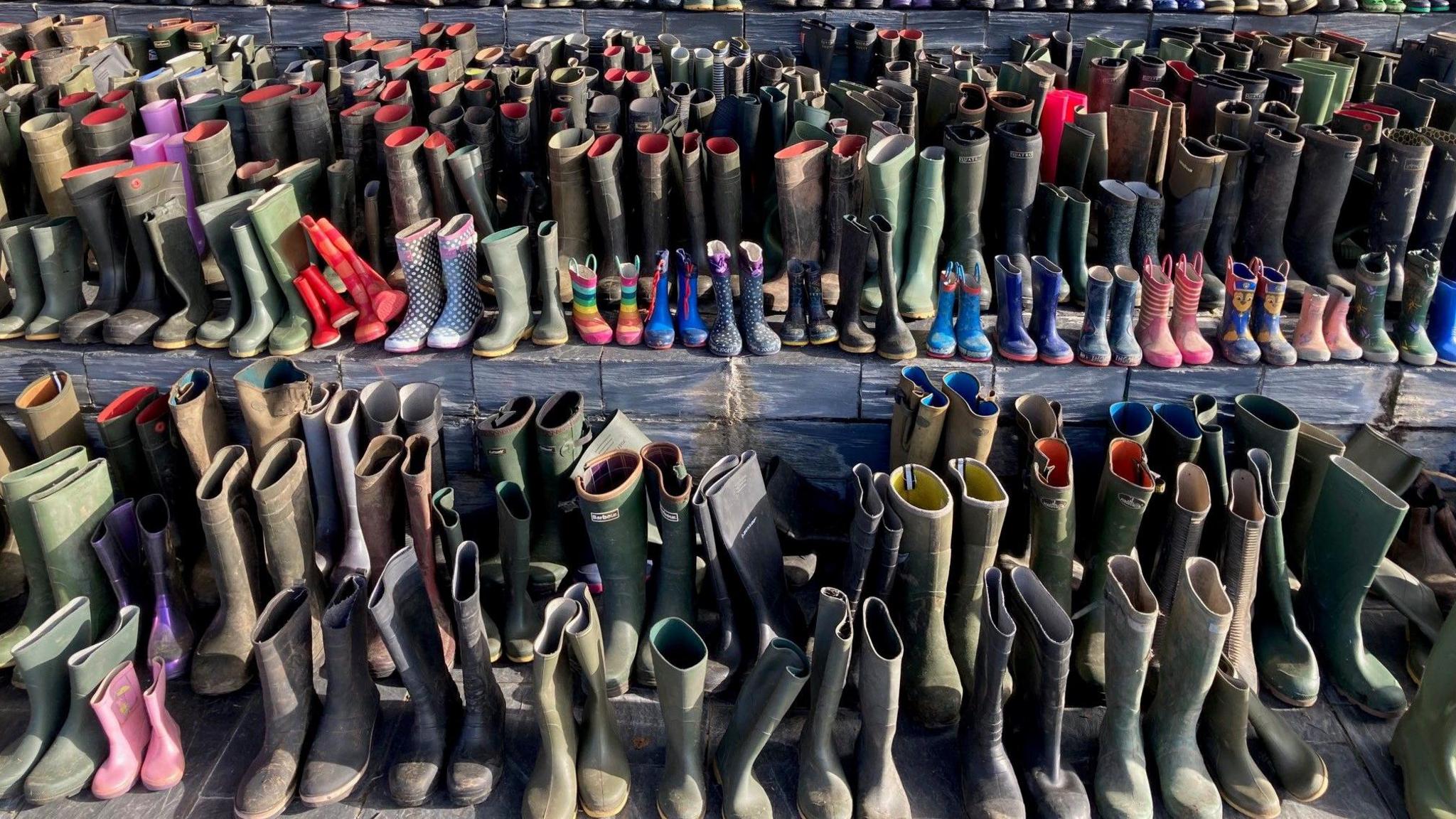
The scheme led to protests that saw farmers leave wellies in front of the Senedd
The Sustainable Farming Scheme (SFS) will replace EU payments for farmers, which were largely based on how much land was farmed. The new approach rewards sustainable farming.
A previous impact assessment suggested the SFS could result in 10.8% less livestock on Welsh farms, and an 11.4% labour loss.
Unions predicted job losses while the Welsh government's economic assessment claimed that was not necessarily the case.
The latest assessment predicts cuts of about 5% in livestock and 4% in labour. Again, it says the numbers may be an overestimate.
More funding will be available to farmers for other work they do.
NFU Cymru president Aled Jones said while the new economic assessment was an improvement it was still "extremely concerning".
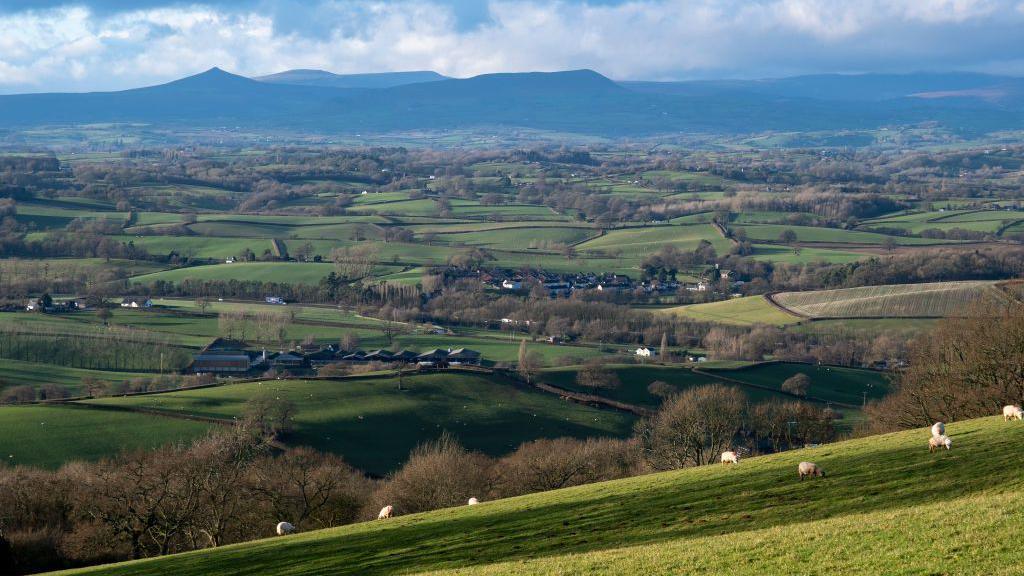
NFU Cymru was still concerned about the plan
"There is, therefore, more work to do to support Welsh farming, as well as the businesses and communities that we underpin," he said.
NFU Cymru, he added, wanted government to address elements that "negatively impact on income, jobs and production".
Environment groups said farming was losing jobs currently, with a drop of about 8,000 in Wales between 2011 and 2021.
Wildlife group WWF Cymru said it feared the scheme had been "watered down" and would not deliver sustainable farming.
It said it wanted more than 50% of the budget to fund nature and "climate-friendly actions".
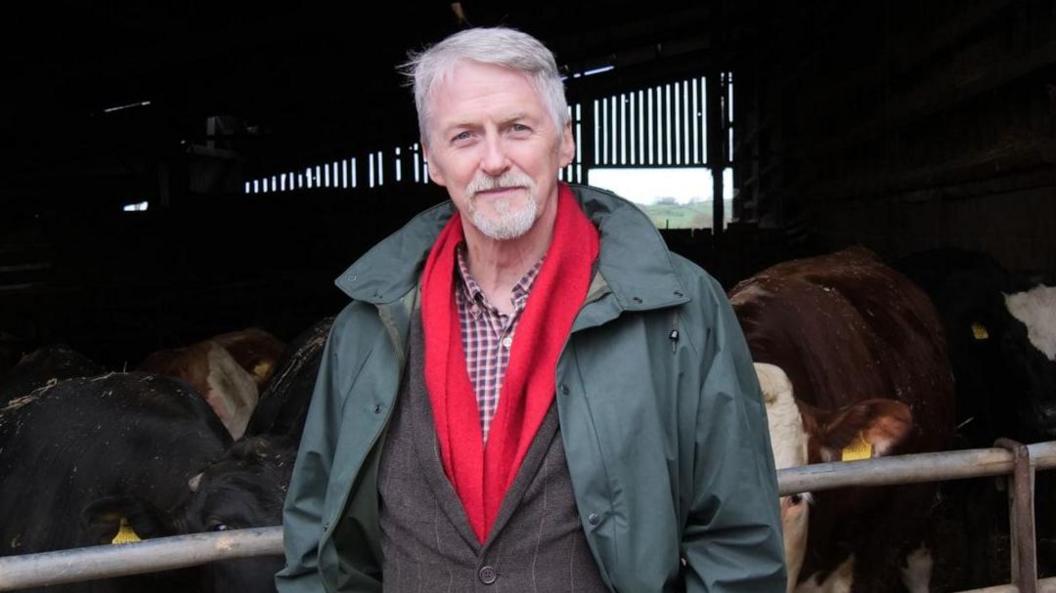
Huw Irranca-Davies said farms would be supported in environmentally beneficial work
Deputy first minister Huw Irranca-Davies, responsible for rural affairs, said: "We will continue to support farmers to maximise the benefits to their farm businesses and for the environment."
That would improve food production and a create a stronger market position for Welsh farmers, he said.
No two farms, he added, were alike, saying: "It is therefore critical every farmer understands what the scheme will mean for them and their farm, and what their likely payments will be in 2026."
Welsh Tory rural affairs spokesman Samuel Kurtz called on the Welsh government to scrap the SFS scheme.
It could, he said, cause "devastating damage to Welsh farming and rural communities".
"The Welsh Conservatives propose replacing the SFS with a scheme that genuinely works for farmers, placing food security and production at its core," he said.
Plaid Cymru's rural affairs spokesperson Llyr Gruffydd said: "The underfunding of Welsh agriculture by the UK government must stop."
He added: "A Plaid Cymru government will give farmers a multi-annual funding guarantee for the whole four-year term of the next Senedd."
Related topics
- Published13 July
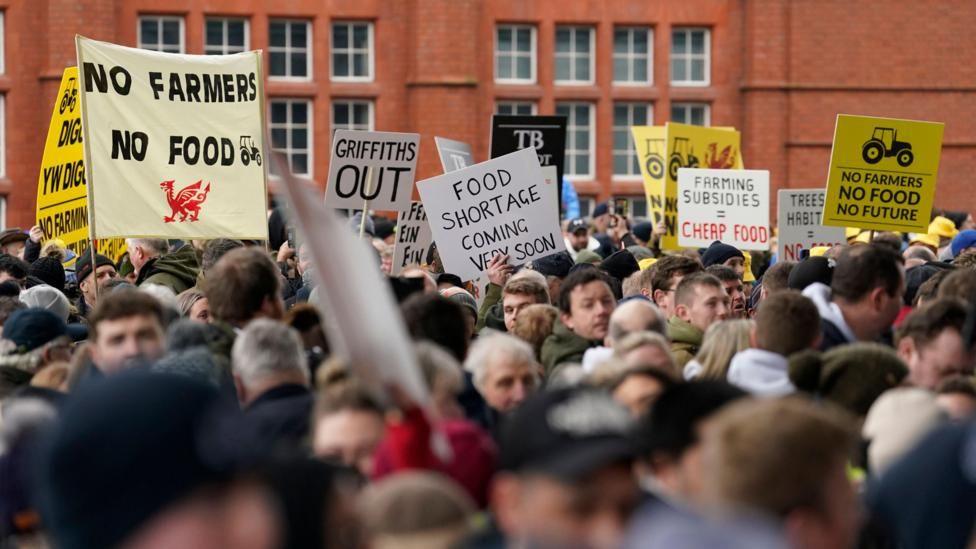
- Published28 September 2023
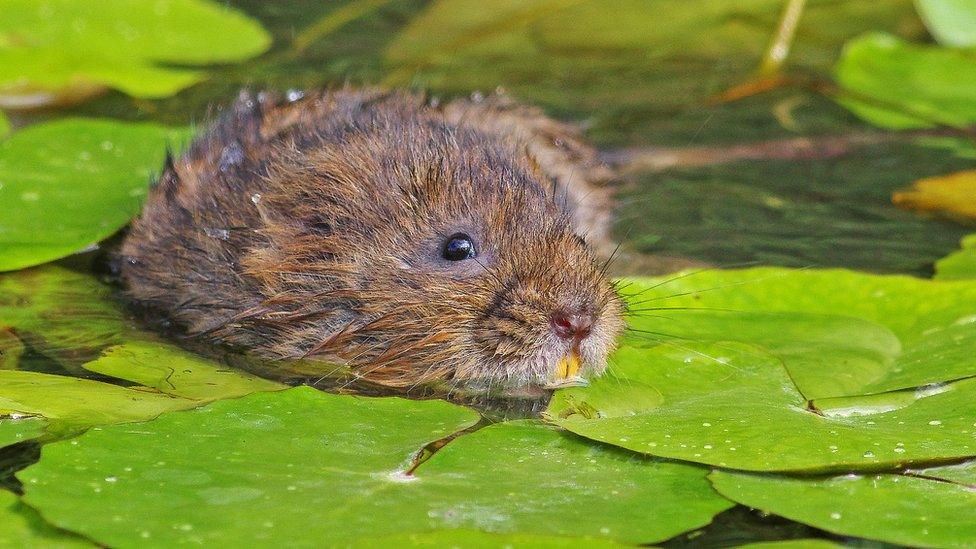
- Published6 March 2024
